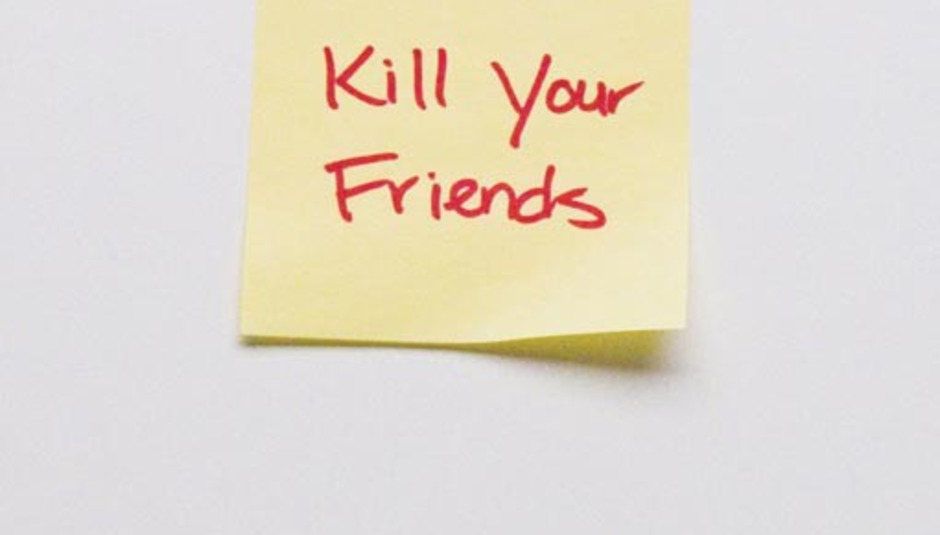In the latest edition of The Insider, the art of criticism in the world of Web 2.0 is put under the microscope.
With the recent news that streams are likely to eventually be included in some form of combined chart, the concept of launching new artists becomes even more difficult. Given that the rise of iTunes and other download services has altered the charts radically since the days when everything was geared towards a six week build culminating in a blazing entry into the charts, this additional layer of information is undoubtedly going to push new releases in general even further down the chart.
Is this a bad thing? Well, no doubt debate will range and I for one was hoping for a more sensible approach from labels, artists and managers to the new reality where the change in purchasing patterns would lead back to a world I remember in the 1980s where artists climbed the chart rather than entering one week and dropping like a stone from thereon in. In theory, this new approach to the charts should help that to prosper as word of mouth gives individual tracks a longer tail and growing sense of importance week on week with appearances on Spotify and other steaming playlists creating more exposure but the current iTunes experience is that what you actually end up with is a clutch of huge new releases with massive marketing backing mixed in with singles that have been in the chart forever and tracks that are linked to reissues or big remarketing campaigns.
Why should this be a problem to some of the artists that DiS spends its time following? Record companies still look for chart hits or some kind of chart placing to gauge the success of failure of their new charges and, whilst individual A&Rs and other team members may have a more defined and comprehensive view of the bands they work with and what constitutes success, the truth is that the big decisions are rarely made by those with direct knowledge of the artists and chart positions and sales figures can mean the difference for an artist between getting the chance to record a second album and not. Marketing campaigns, advertising spends and general enthusiasm from labels are dependent on the actual sales and potential sales of the artists whether we like it or not. There are very few labels that will stick with a difficult artist in the current times and, irrespective of whether we find that objectionable or understandable we have to recognise that another layer of heritage music adding to a chart is unlikely to make things better. This is before you add in the reactions of the sellers themselves, both online and traditional and the media that offers exposure to new artists.
The problem is compounded by the lack of any other tangible show of progress for those trying to work with an artist and help them develop and succeed. The '80s (and to some extent '90s) model of a strong print media and truly alternative radio and TV options has been replaced by a sludge of pseudo alternative arenas that offer nothing other than a pale imitation of this view of success. So television has, in place of The Tube and Whistle Test; Later... a musical smorgasbord, and a clutch of mobile phone sponsored specials on so late at night that they cannot confirm any kind of consensus or attract sufficient viewing figures to make any significant dent. At radio the idea of the alternative is now so blurred that Radio 1 evening programmes, Xfm and Radio 6 are part heritage, part potential hit, rarely anything truly underground. As for the late night alternative programs such as Spin TV that made the '80s so vibrant for indie bands, there really is nothing comparable. There isn’t even a chart show with an indie chart run down every few weeks. The three weekly magazines (NME, Melody Maker and Sounds) have been reduced to one and the monthlies that have grown in the wake of the weekly’s demise straddle the world of reissues and classic artists alongside new artists (Uncut, Mojo, Word) or go for the biggest show in town (Q). This is no criticism of those in charge at any of the titles, simply a recognition of the circumstances in which they operate and the audiences they look to attract.
Whilst the efforts of sites such as DiS, The Quietus and others and print titles such as Loud and Quiet and The Stool Pigeon are laudable and most welcome, their reach is limited and their influence should be that of the underground, aware that it's capable of pushing artists into the above titles and the platforms on the web that replicate or mirror them. The problem is that all too often the push stops here, choking off the new before it can get out to enough people to make a real difference to our culture.
It is the curse of the modern world that we have more access to music and, therefore, obscure and small scale artists, yet these artists are finding it increasingly hard to get heard by enough people to make a difference. In tandem with the stranglehold of a coterie of artists holding all the cards in the mainstream media (see the repetition of tried and tested names on magazine covers or repeated ‘specials’ on certain bands at radio) we also seem to have reached a point where the diffuse nature of the media options available has reduced the role of the critic as touchstone to a point where we have to ask whether music criticism has a future at all. In relation to the discussion above, this is a crucial point for anyone like myself who desires to work with creative artists that aren’t easily marketable from the off or for any artist that is looking to develop over time. The critics are the only show in town for us as getting heard any other way simply isn’t on the cards.
Music criticism in itself is a fairly young pursuit. The influence of writers from the late '60s through to the '90s may at times be overstated, the cult of worship around Lester Bangs has always perplexed me, but the prevalence of the music critics of the past in the serious literary canon, whether Bangs, Cameron Crowe, Julie Burchill, Tony Parsons, Danny Kelly or Paul Morley to name but a few gives ample evidence of the cultural impact of the music critic in past decades. It is sad to say that you would struggle to identify any current critics that are likely to reach such heights in the coming years. It says much to me that the recent success of John Niven is that of an A&R man caricaturing the excesses of the industry rather than creating rock 'n' roll myths from the artist’s side of things.
Whilst there are many in the industry that define this situation as emblematic of the lack of good writers around, it is undoubtedly more complex. The lack of inspiration for young writers plays a role in the type of music writers that we get. Further to that, the editorial pressure to sell copies in a declining market is unlikely to aid the rise of another Paul Morley with his Marxist analysis of pop or a Crowe style lost weekend with an artist. Add to that record company controls of their artist through PRs and you are unlikely to come up with something very exciting, very often.
Clearly the internet has reduced the role of critic to that of participant rather than expert. Any critical opinion is now challenged within minutes of being published with the hostility of responses on some forums quite astounding at times. Yet what we could mistake for passion in response is often prejudice. We are too often dealing not with open minds engaging with the debate but entrenched opinions shouting as loud as possible to drown out the other side. Seldom is debate on forums nuanced or indeed informed. Whilst the critics of the past may have been in an over privileged position, a charge frequently levelled at NME personnel in the '80s through the old forum equivalent of the letters page, the ability for their opinions to be dispersed prior to the debate beginning meant that at least some responses were considered rather than bashed out in a frenzy of pre determined froth. Of course, this is a generalisation and not all forum activity is of this type but the general tone of response to critical opinion is much like that of response to politics, an inherent distrust and rejection of any perceived authoritative position.
What we have now is a situation where there is no accepted authoritative voice, where anyone can set up a website and throw their opinions out into the ether, complicated by fake blog entries controlled by management and / or labels, fake internet votes where banks of label hired people or uber fans who get through controls to skew polls, snatch awards and distort the whole to a point where it is essentially meaningless. The preponderance of minority (elite/niche/intelligentsia) interest websites may seem a good thing to some but to me this is a white flag for popular culture. Sitting in your demarcated musical area, preaching to the converted is no progress whatsoever. Sure there will be plenty of responses to this scoffing at the notion that artists should ‘cross over’ but that is exactly what touchstones such as The Smiths, The Cure, New Order, Stone Roses, The Prodigy and add your own did. The kind of people who like crying "SELL OUT" now dominate music discussion on the web and we are all the poorer for it. We seem to have forgotten that critics are there to highlight shifts and trends in popular culture en masse and facilitate the movement of the underground into the mainstream, preferring instead to deride any critic’s efforts whilst offering nothing of meaning in its place.
The reliance of old media on the new media approach, asking for texts when they play new tunes on radio one or looking for comments on everything and anything online further muddies the water. It seems as though the media outlets trust their own judgement less and less in response to this supposed democratisation of the critical process, which compounds and aggravates the situation. Ever changing opinions and prejudices of a coterie of bedroom critics steer the direction of the media whilst editors remain under the thumb of publishers and controllers and writers and DJs sit very much at the bottom of this unholy pile, powerless to play or write about the things that really move them and unable to project a clear message of what is worthy to the general public.
Ultimately this is not good for any of us. The lack of strong, informed and considered critical voices championing new art and engaging the public in considered appreciation or rejection of their opinions leaves popular culture all the weaker. If we truly feel that an anarchist cultural climate, in which no voice can claim any authority for what is worthy, is a positive then we also have to accept that the concept of mainstream culture itself is dead. When we ask why there are no mass movements in music to rival the late 60’s psychedelia, punk and postpunk, Britpop or acid house are brightening up this decade then the answer is staring us in the face. The death of the critic heralds the death of the community experience and leaves us disparate and unfocused, talking to ever decreasing circles, entrenched and removed from the concept of music as a potentially revolutionary social force.






















